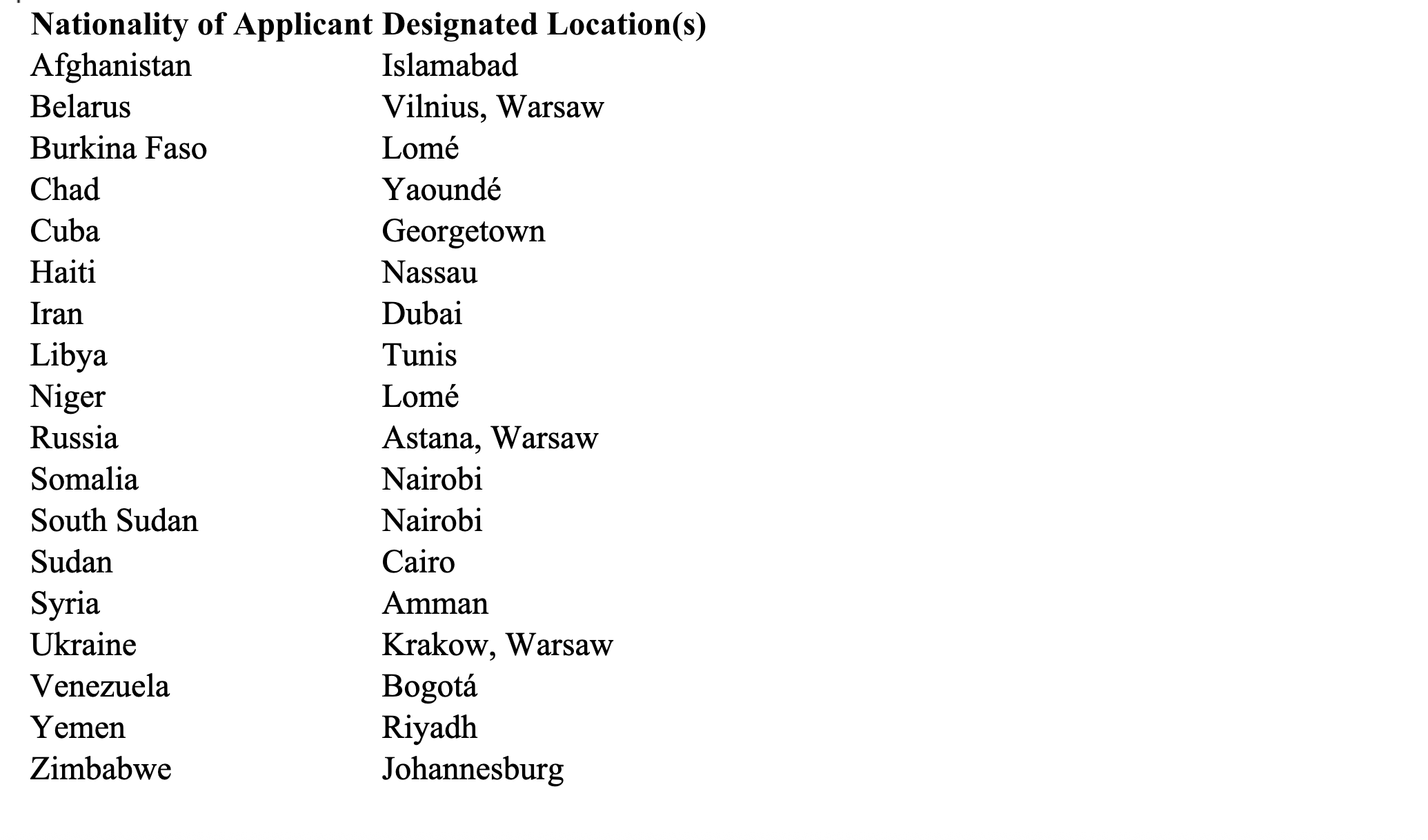.png)
The U.S. Department of State has fundamentally reshaped the visa process with a sweeping new policy that ends the long-standing practice of “forum shopping.”
Effective this fall, both immigrant and nonimmigrant visa applicants must now complete their interviews in their country of residence or nationality. In short, the era of flying to a neighboring country to find faster appointments—or to take advantage of a more lenient consulate—is over.
For anyone planning to work, study, visit, or immigrate to the United States, understanding these changes is critical to avoiding costly mistakes and unnecessary delays.
The New Policy: Key Changes
- For Immigrant Visa (IV) Applicants
Starting November 1, 2025, all immigrant visa applicants — including family-based (IR/CR) and employment-based (EB) applicants — will be required to complete their consular interviews in their country of residence, or, if requested, their country of nationality.
Existing appointments will generally not be canceled, but any new requests to transfer a case must go through the National Visa Center (NVC), not directly with the consulate.
- For Nonimmigrant Visa (NIV) Applicants
Effective October 9, 2025, applicants for U.S. nonimmigrant visas — including B (visitor), F (student), and H (employment) visas — must schedule their interviews only at a U.S. embassy or consulate in their country of nationality or residence.
- Limited Exceptions
Transfers to another country’s consulate will now be permitted only in rare humanitarian or medical emergencies and must be approved through the NVC. Exceptions for diplomatic or international organization visas—such as A, G, C-2, C-3, and NATO categories—remain in place.
- Designated Consulates for Restricted Countries
Applicants from countries with suspended or limited consular operations will be reassigned to regional processing posts.
Immigrant Visa (IV) – Designated Processing Posts (Effective Nov 1, 2025)

Nonimmigrant Visa (NIV) – Designated Processing Locations (Effective Oct 9, 2025)

What This Means for You
This policy marks a clear shift toward stricter geographic control and reduced flexibility. Applicants should prepare for three major consequences:
1. The New Standard of “Residence”
Visa applicants must now demonstrate that the location where they apply is either their country of nationality or their actual place of residence.
- The Risk: If you reside in a country other than your country of nationality and intend to complete your visa interview there, you should secure evidence of your residence, such as rental agreements, utility bills, or proof of local employment.
2. Expect Severe Backlogs at Designated Posts
Thousands of applicants from affected countries will now be funneled into a limited number of regional embassies.
- Expect Delays: Consulates such as Warsaw, Abu Dhabi, and Nairobi are expected to experience significant wait times, extending from initial appointment scheduling to final passport return.
3. The End of Applicant Choice
Visa applicants will no longer have the flexibility to select their interview location for convenience or efficiency. This rigidity particularly affects those who previously benefited from alternate processing locations.
How to Prepare for the New Reality
Success under this new policy depends on early preparation and strategic case management:
- Verify Your Interview Location: Confirm the correct embassy or consulate before starting your application.
- Gather Proof of Residence: If you live in a country different from your nationality and will be completing your interview there, secure evidence of your residence — such as rental agreements, utility bills, or local employment documentation.
- Plan for Delays: Build extra time into your immigration or travel plans, especially if you are from a country with designated regional posts.
- Seek Legal Guidance: Immigration attorneys can help determine whether your situation qualifies for an exception or an expedited interview request.
Our Insight
At the Law Offices of Sabrina Li, P.C., we have extensive experience guiding clients through complex consular processing challenges.If you believe this policy may affect your case—or if you are unsure where your visa interview will take place—contact our office today. We’ll help you understand your options, avoid unnecessary delays, and protect your immigration goals.
